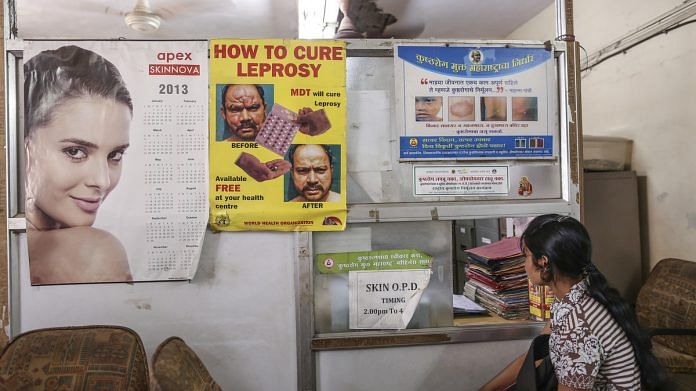Lok Sabha passed bill excluding leprosy as grounds for divorce but provisions across multiple pieces of legislation still discriminate against patients.
New Delhi: The Lok Sabha Monday passed a bill officially excluding leprosy as grounds for divorce across religions in India, in a bid to reduce the discrimination faced by the patients in the country.
The Bill, the passage of which would require an amendment in five marriage-related laws, including the Divorce Act (1869), the Dissolution of Muslim Marriages Act (1939), the Special Marriage Act (1954), the Hindu Marriage Act (1955) and the Hindu Adoptions and Maintenance Act (1956), was originally introduced in August 2018, and finally passed by the Lower House Monday.
“This is definitely a positive step taken by the government, which ends discrimination that is based on stigma and misunderstanding of the disease,” said Dhvani Mehta, a Senior Resident Fellow at Vidhi Centre for Legal Policy (VCLP), an independent legal policy advisory group.
“Out of all the cases we see in relation to leprosy, a high proportion deal with marriage and divorce, so this was much needed,” she said.
According to the Statement of Objects and Reasons of the bill, leprosy patients were segregated as there was a belief that there was no cure for the disease but with modern medicine having changed that, “the attitude of the society towards them began to change”.
“Presently, leprosy is completely curable and can be treated with multidrug therapy. However, old legislative provisions discriminating the persons affected by leprosy continued in various laws,” the bill reads.
While the bill was welcomed by most parliamentarians cutting across party lines, AIMIM president Assaduddin Owaisi took exception to it, arguing that there should be no interference in Muslim personal law.
Also read: India announced end of leprosy 13 years ago, but 1.3 lakh cases were detected in 2016
A long road
While the cure to the disease has existed since the late 20th century, discriminatory laws leading to the social exclusion of those suffering from the ailment have continued to exist.
The discriminatory Leper’s Act introduced by the British in 1898 which segregated and physically ostracised those affected, was repealed by the Law Ministry only as recently as 2015.
The Act, which basically existed in contravention to the fundamental right of equality of citizens, institutionalised discrimination of the affected by segregating leprosy patients in colonies away from the general population.
With the Leper’s Act and leprosy as grounds for divorce now gone, India may be making some strides in removing the stigma towards leprosy. Mehta, however, pointed out that even now, there are over hundred provisions across multiple pieces of legislation that continues to discriminate against people affected.
“There are so many acts that continue to discriminate against people with leprosy in terms of whether they can be appointed in educational institutions, be elected in civic bodies, have access to public places, among others,” she said.
“While we have challenged all of them in court, we wish the government had struck all of them in one go, and not adopted a piecemeal approach,” Mehta added.
For example, the Orissa Municipal Corporation Act, 2003, disqualifies a leprosy patient from contesting civic elections. Similarly, the Rajasthan Panchayati Raj Act, 1994, disqualifies a leprosy victim from contesting elections for the post of a panch.



